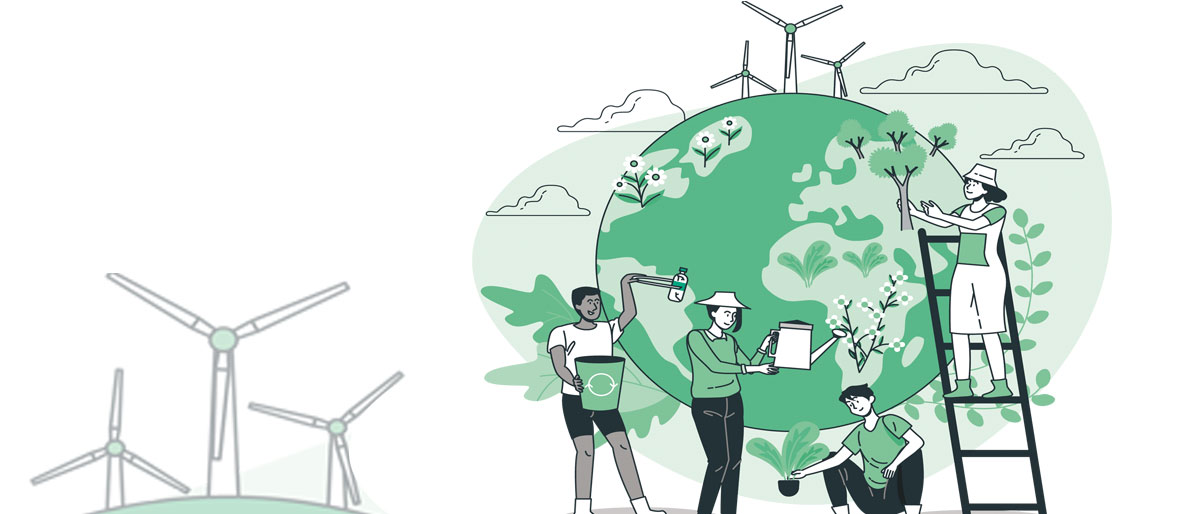
- 11 students
- 7 lessons
- 0 quizzes
- 16 week duration
PRESENTATION
In 2021, more than ever, VIS School of Advanced Training keeps proposing its online courses specifically focused on the theme Environment, Climate Change and International Cooperation.
Two web talks on specific topics and two courses have been activated this year, dealing with such a theme:
– a basic course starting on February 1st, for Italian-speaking trainees, as first approach but yet well-structured and suitable to provide a theoretical and practical path to begin a serious engagement in this field;
– an advanced course starting on April 12th for global trainees, more specializing, devoted to trainees who already have good knowledge and experience in Environment/CC or in International Cooperation but not yet in their cross-cutting combination or want to upgrade their professional profile.
WHY STUDYING AND UPDATING IN ENVIRONMENTAL MATTERS?
There is a growing attention to environment and climate change both by public opinion and by economic, social and political actors, public and private. Even for international cooperation, environmental issues and problems have become a priority, as well as their concrete solution.
Such attention certainly derives from the sharpening of the negative impacts by human action on all environmental aspects, on ecosystem services, until yesterday taken for granted by the majority. But it also descends from a growth of awareness and culture in such matter, which is no longer reserved to technical experts or activists motivated by poetic ideals on nature conservation. The Report published by IPCC in October 2018 and the release of GEO6 in 2019 both confirm the seriousness of the planetary situation. And the global risks liaised to neglected WASH policies in many countries, especially during the long-lasting Covid-19 emergency, are under everybody’s eyes. Not by casualty, according to the WEF Global Risks Report 2021 the top 3 risks by likelihood are environmental: traditionally (top 5 in 2020, top 3 in 2019).
The global environmental crisis, which has now become evident even in the most skeptical consciences, represents a primary challenge, both geopolitical and economic, no longer merely ecological. It is no coincidence that the new global security horizon is becoming increasingly clear in the environmental dimension and cannot anymore be managed only with military instruments and mentalities. The same high incidence of environmental factors can be found in migratory problems, where more and more scholars but also practitioners of cooperation deal with working on the links between environmental degradation and climate change on the one hand and migratory movements, also linked to conflicts, on the other.
As a matter of fact, there is a two-way causal chain between environmental degradation and poverty, as well as between human well-being and the quality of the environment. To reverse this vicious circle, it is necessary to insert specific attention to environmental profiles and impacts, in a transversal and widespread manner, in all policies and measures to combat poverty and to promote development, not just those with specific environmental focus. For example, including such attention and enhancement of environment also in projects concerning health, education or production sectors and not only in those traditionally environmental, such as the care of protected areas or the protection of endangered species.
This learning path wants to offer a serious way, even moderately demanding but within everyone’s reach, to understand how international cooperation can include in all its initiatives, in a transversal and inter-sectoral way, the environmental protection and the opportunities offered by the environment.
Indeed, environmental protection is no longer just a scientific issue but also political. Therefore, environmental sustainability is not a goal for specialists and professionals only: it concerns everyone and can be really achieved only if the care for the environment spreads in every place, in each individual, in every daily gesture and choice. The growing transversal engagement in this sense by national Development Cooperation Agencies and even by CSOs demonstrates the new way for an Ecofriendly International Cooperation: the Environmental Mainstreaming Approach (EMA), respecting the transversal nature of environmental themes, promoting the integration of environment in all its sectorial initiatives, as means to achieve the goal of sustainable development. Moreover, the very contents of the 2030 Agenda for Sustainable Development are all set up with a clear approach of EMA, as we’ll explain in detail throughout the course.
The growing importance of environment and climate change issues imply important job opportunities. The demand for environmental sustainability is growing all over the world and therefore the demand for people capable to integrate environment into planning. But to seize this opportunity everybody needs first to understand whether and to what extent he/she is really willing to redefine our professional skills and experiences. Practitioners need a solid training in Environmental Mainstreaming Techniques. Therefore, we all need a path of discernment, passing from the mere poetry of nature to basic but solid environmental competences, in order to face a subsequent path of specialization.
LEARNING ACHIEVEMENTS
The advanced course leads each participant to complete or update his/her knowledge, skills and competences regarding the enhancement of environment in international cooperation initiatives. Beginning from the course, the trainee can become an expert in Environmental Mainstreaming Techniques.
Thanks to the interactive and participatory work method – characterized by an international class, interactive lectures, exercises in interdisciplinary groups, a workshop in Rome with international speakers – all participants will learn in depth what are the themes, the contexts, the problems and the opportunities offered by the environment and the practical modalities useful to make the international cooperation interventions really sustainable.
Each trainee will also learn to work in an interdisciplinary manner, dialoguing and working with classmates coming from mostly diverse locations and back-grounds.
-
Introduction
-
Didactic Materials
-
Video classes
-
Conclusions
-
0 % In Progress
-
100 % Passed
-
100 % Passed
-
100 % Passed
-
100 % Passed
-
100 % Passed
-
100 % Passed
-
100 % Passed
-
100 % Passed
-
100 % Passed
-
100 % Passed
5.00 average based on 1 rating
Reviews
-
Great course - content, people, structure and the course instructor. I found it very insightful, comprehensive. I really enjoyed the team approach for the assignments as it has enriched further the learning process from the other course mates' experience. Deep and vast knowledge, great enthusiasm, drive and commitment of the course instructor, Professor Zortea, were also highly appreciated.
